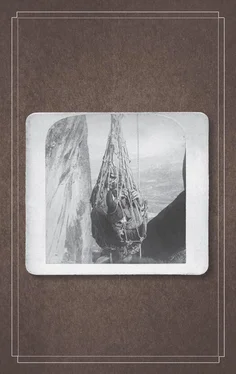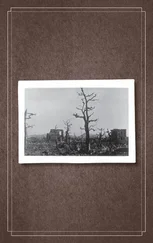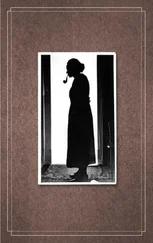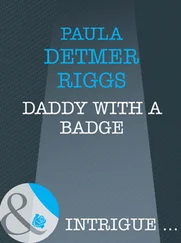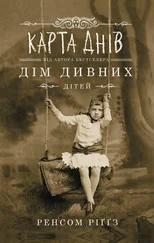Emma gave up on Enoch and turned to the boy. “If circumstances were different, we’d welcome you with open arms. But as it stands, our entire civilization and way of life are in danger of being snuffed out. So it’s rather bad timing, you see.”
“It isn’t fair,” the boy moped. “Why couldn’t I have started disappearing ages ago? Why did it have to happen now ?”
“Every peculiar’s ability manifests in its own time,” said Millard. “Some in infancy; others not until they’re quite old. I once heard of a man who didn’t realize he could levitate objects with his mind until he was ninety-two years of age.”
“I was lighter than air from the minute I was born,” Olive said proudly. “I popped out of me mum and floated straight up to the hospital ceiling! Only thing that stopped me from rolling out the window and into the clouds was the umbilical cord. They say the doctor fainted from the shock!”
“You’re still quite shocking, love,” Bronwyn said, giving her a reassuring pat on the back.
Millard, visible thanks to the coat and boots he wore, went to the boy. “What does your father think about all of this?” he said.
“Naturally, we don’t want him to go,” Bekhir said, “but how can we properly care for our son if we can’t even see him? He wants to leave—and I wonder if perhaps he’d be better off among his own kind.”
“Do you love him?” Millard asked bluntly. “Does he love you?”
Bekhir’s brow furrowed. He was a man of traditional sensibilities, and the question made him uncomfortable. But after some hemming and hawing, he growled, “Of course. He’s my child.”
“Then you are his kind,” said Millard. “The boy belongs with you, not us.”
Bekhir was loath to show emotion in front of his men, but at this I saw his eyes flicker and his jaw tighten. He nodded, looked down at his son, and said, “Come on, then. Pick up your bag and let’s go. Your mother’ll have tea waiting.”
“All right, Papa,” the boy said, seeming at once disappointed and relieved.
“You’ll be fine,” Millard assured the boy. “Better than fine. And when this is all over, I’ll look for you. There are more like us out there, and we’ll find them one day, together.”
“Promise?” the boy said, his eyes full of hope.
“I do,” said Millard.
And with that the boy climbed back onto his father’s horse, and we turned and walked through the gates into town.

T he town was named Coal. Not Coaltown or Coalville. Just Coal. The stuff was everywhere, piled in gritty drifts by the side doors of houses, wafting up from the chimneys as oily smoke, smeared on the overalls of men walking to work. We hurried past them toward the depot in a tight pack.
“Quickly now,” Emma said. “No talking. Eyes down.”
It was a well-established rule that we were to avoid unnecessary eye contact with normals, because looks could lead to conversations, and conversations to questions, and peculiar children found questions posed by normal adults difficult to answer in a way that didn’t invite still more questions. Of course, if anything was going to invite questions, it was a group of bedraggled-looking children traveling alone during wartime—especially with a big, sharp-taloned bird of prey perched on one of the girls’ shoulders—but the townspeople hardly seemed to notice us. They haunted the laundry lines and pub doorways of Coal’s twisting lanes, drooping like wilted flowers, eyes flicking toward us and away again. They had other worries.
The train depot was so small I wondered if trains ever bothered stopping there. The only covered portion was the ticket counter, a little hut in the middle of an open-air platform. Inside the hut was a man asleep in a chair, bottle-thick bifocals slipping down his nose.
Emma rapped sharply on the window, startling the clerk awake. “Eight tickets to London!” she said. “We must be there this very afternoon.”
The clerk peered at us through the glass. Took off his bifocals and wiped them clean and put them on again, just to make sure he was seeing properly. I’m sure we were a shocking sight: our clothes were mud-splotched, our hair greasy and sticking up at odd angles. We probably stank, too.
“So sorry,” the clerk said. “The train is full.”
I looked around. Aside from a few people dozing on benches, the depot was empty.
“That’s absurd!” said Emma. “Sell us the tickets at once or I shall report you to the rail authority for child discrimination!”
I might’ve handled the clerk with a softer touch, but Emma had no patience for the self-important authority of petty bureaucrats.
“If there were any such statute,” the clerk replied, his nose rising disdainfully, “it would certainly not apply to you. There’s a war on, you know, and more important things to be hauled about her majesty’s countryside than children and animals!” He gave Miss Peregrine a hard look. “Which aren’t allowed in any case!”
A train hissed into the station and squealed to a stop. The conductor stuck his head out of one of its windows and shouted, “Eight-thirty to London! All aboard!” The bench-sleepers in the depot roused themselves and began to shuffle across the platform.
A man in a gray suit shoved past us to the window. He pushed money at the clerk, received a ticket in exchange, and hurried off toward the train.
“You said it was full!” Emma said, rapping hard on the glass. “You can’t do that!”
“That gentleman bought a first-class ticket,” the clerk said.
“Now be gone with you, pestilent little beggars! Go find pockets to pick somewhere else!”
Horace stepped to the ticket window and said, “Beggars, by definition, do not carry large sums of money,” and then he reached into his coat pocket and slapped a fat wad of bills down on the counter. “If it’s first-class tickets you’re selling, then that’s what we’ll have!”
The clerk sat up straight, gaping at the pile of money. The rest of us gaped too, baffled as to where Horace had gotten it. Riffling through the bills, the clerk said, “Why, this is enough to buy seats to an entire first-class car!”
“Then give us an entire car!” said Horace. “That way you can be sure we’ll pick no one’s pocket.”
The clerk turned red and stammered, “Y-yes sir—sorry, sir—and I hope you won’t take my previous comments as anything other than jest …”
“Just give us the blasted tickets so we can get on the train!”
“Right away, sir!”
The clerk slid a stack of first-class tickets toward us. “Enjoy your trip!” he said. “And please don’t tell anyone I said so, sirs and madams, but if I were you, I’d hide that bird out of sight. The conductors won’t like it, first-class tickets or not.”
As we strode away from the counter with tickets in hand, Horace’s chest puffed out like a peacock’s.
“Where on earth did you get all that money?” said Emma.
“I rescued it from Miss Peregrine’s dresser drawer before the house burned,” Horace replied. “Tailored a special pocket in my coat to keep it safe.”
“Horace, you’re a genius!” said Bronwyn.
“Would a real genius have given away every cent of our money like that?” said Enoch. “Did we really need an entire first-class car?”
“No,” said Horace, “but making that man look stupid felt good, didn’t it?”
“I suppose it did,” Enoch said.
“That’s because the true purpose of money is to manipulate others and make them feel lesser than you.”
Читать дальше
